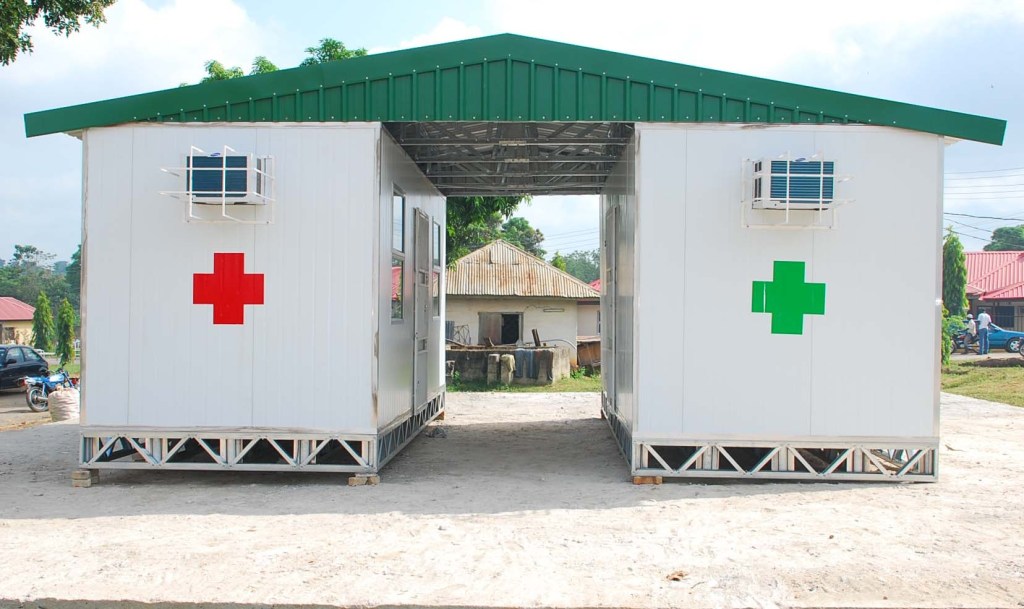Held under the theme: ‘Building a Stronger Partnership to End TB in Nigeria,’ the conference brought together players in TB control and the academia to foster access to researches, technologies, and innovations in TB control in Nigeria.
Speaking at the event, Nigeria’s first lady, Aisha Buhari, said the country needs to treat the TB challenge with urgency as there are still many missing cases.
Mrs. Buhari, represented by an aide, Hajo Sani, said the conference was taking place at a very important time when Nigeria needs to pay more attention to TB, which she said has become the number one killer disease in the world.
Mrs. Buhari said it is unacceptable that Nigeria has the lowest TB detection rate globally, especially with the emergence of drug resistance TB (D-RTB) in the country.
“It is based on the need to build stronger partnership and alliance to end TB that I accepted to be the global TB champion and ambassador to end TB in Nigeria. I hereby call on all stakeholders, including elective and all appointed officials, development partners, civil society, academia, media, religion, and traditional institution to work more to end TB in Nigeria.
“ As a TB champion, I will use my position to call for more resources for TB from the government at all level in order to close the huge gap for funding of TB in Nigeria. It is only through effective ordination that we can end TB in Nigeria,” she said.
TB in Nigeria
Nigeria is among the 14 high-burden countries for TB, TB/HIV, and Multi-Drug Resistant TB globally. Currently, the country has the highest number of TB cases in Africa and the sixth highest in the world.
The problem has been compounded by the issues of DR-TB and HIV/AIDs epidemic. It is estimated that 407,000 people in Nigeria have TB every year. Unfortunately, most of the cases are missed or detected late. TB is a curable disease.
Nigeria still has the lowest TB detection rate as only 25 percent of the TB cases are detected.
A major issue with finding TB cases in the country is the lack of funding, expertise, and equipment at primary health care level to diagnose the ailment.
The WHO national Professional Officer, TB, Ayodele Awe, said over 300,000 cases of TB are still being missed in Nigeria yearly.
He said each undetected TB case has the potential of infecting 10 to 15 persons a year. He said the disease is preventable and curable but the burden of the disease in Nigeria is further fuelled by the missing cases which serve as a pool of reservoir for continuous transmission.
More political participation
Speaking in a similar vein, the Executive Director, Stop TB Partnership Geneva, Lucica Ditiu, said it is very clear there is a problem with TB in Nigeria.
“We have a large number of people with TB and also a large number with MDRTB and a large number of these people are yet to be diagnosed and treated. It is a big drama and has a snowball effect because everyone is affected. Unless we contain it, there will be a problem. the TB challenge in Nigeria is big and it needs to be treated for, as long as you breathe, you are affected.”
She said TB needs to stop being treated as public health or clinically medicalized aliment. She said there is a need for a public-private partnership to put an end to the disease.
“There is a huge potential in the political leaders and this needs to be tapped into the narration of TB in the country,” she said.
More funding
Also, a Kenyan legislator and Chair of the African Parliamentary TB Caucus, Stephen Mule, called on lawmakers to allocate more resources to the fight against Tb in Nigeria and Africa at large.
Mr Mule said members of the parliament have a great role to play to put an end to the menace of TB on the continent.
He said they need to make sure the countries domesticate resources to fight TB and other diseases because foreign grants are drying up
“We must up our game in domestic financing and this can be done by the legislators in Nigeria. The new members of parliaments that have come to the house have a role to play in making sure we have clear domestic financing locally and to make sure that they provide a platform to discuss TB when they go to their constituencies.
“The UN made high-level commitments last year and we want to ask the executive within Nigeria to put a priority on all the targets which have been put by the UN to end TB by 2030; to make sure that we deal with this menace once and for all,” he said.
Source: Premiumtimes

 Nigerian leaders must demonstrate political and financial commitment towards ending Tuberculosis (TB) in the country. This was the conclusion on Wednesday at the second National Tuberculosis Conference held in Abuja.
Nigerian leaders must demonstrate political and financial commitment towards ending Tuberculosis (TB) in the country. This was the conclusion on Wednesday at the second National Tuberculosis Conference held in Abuja.




